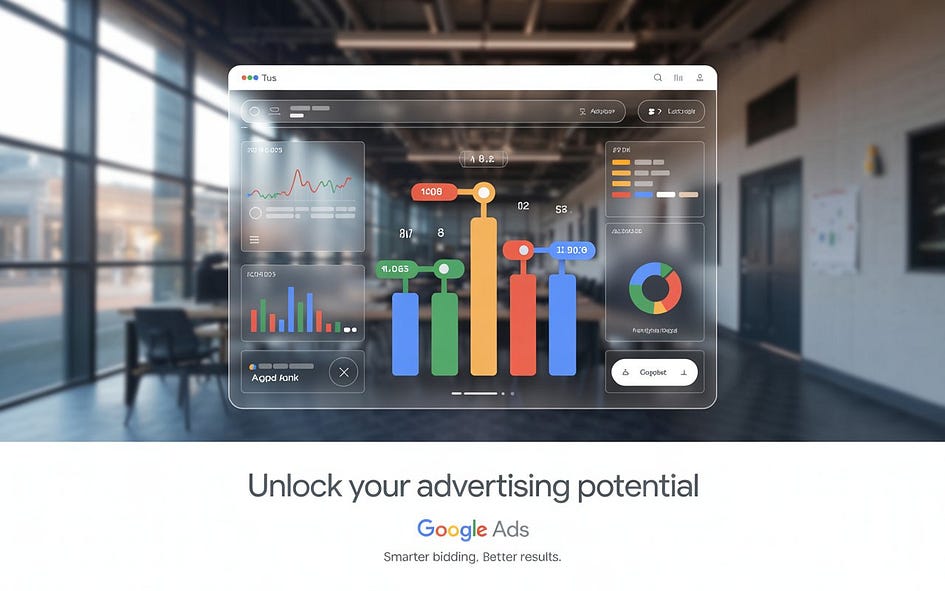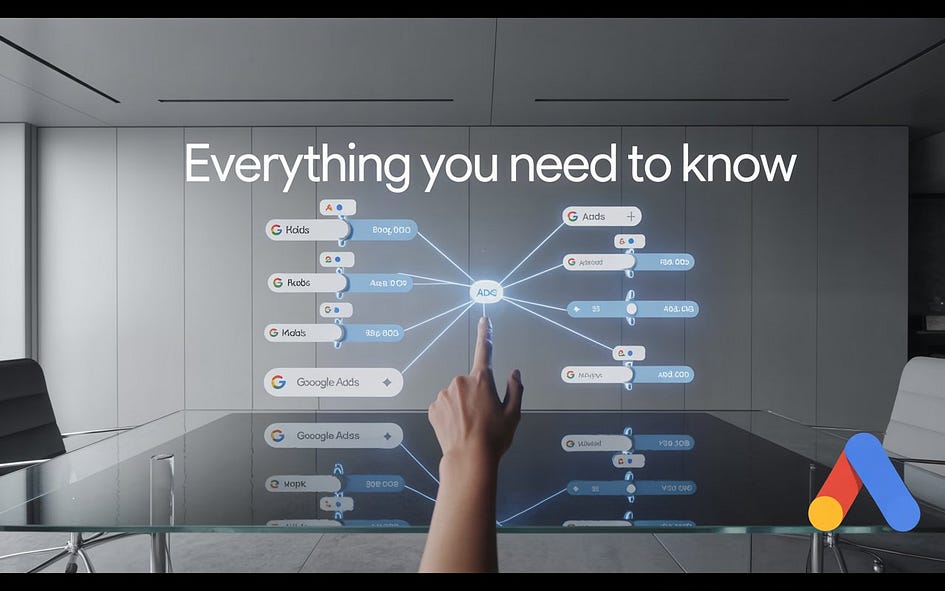ntroduction
Have you ever wondered how Google decides which ads to show when you search something like “best coffee near me” or “buy running shoes online”? It’s not random — it’s all part of the Google Ads Auction System.
If you’re running Google Ads or thinking about it, understanding how this auction system works is super important. It affects when your ad appears, how much you pay, and how effective your campaign will be.
So let’s break it down in simple, easy-to-understand terms.
What Is the Google Ads Auction?
Google Ads Auction is a real-time bidding system that determines which ads appear on Google, in which position, and how much each advertiser pays.
But here’s the deal — it’s not just about who pays the most. Instead, Google looks at several factors like ad quality, relevance, and your maximum bid to decide who wins the auction.
Every time someone does a Google search, a mini auction happens in a split second. Your ad competes with others trying to show up for that keyword.
How Does the Google Ads Auction Work?

Let’s walk through the process step by step:
Step 1: Someone Makes a Search
It all starts when someone types a query into Google, like:
Google then scans its advertisers to see who wants to show ads for that query.
Step 2: Google Checks Eligible Ads
Google reviews the ads that have targeted that keyword and meets basic criteria (like proper targeting, ad quality, compliance, etc.).
Step 3: Calculate Ad Rank
Here’s where it gets interesting. Google doesn’t just choose the highest bidder. Instead, it calculates something called Ad Rank, which is based on:
- Your bid amount (How much you’re willing to pay per click)
- Ad quality (Expected CTR, relevance, landing page experience)
- Ad extensions (Extra links, phone numbers, etc.)
- Search context (User location, device, time, etc.)
🔑 Formula (simplified):
Ad Rank = Bid × Quality Score + Extensions + Context
Step 4: Show Ads Based on Ad Rank
Now Google sorts ads based on Ad Rank and decides:
- Which ads to show
- In what order
- Whether to show any ads at all
Step 5: You Pay Only What’s Needed to Beat the Next Best Ad
Even if your bid was $5 per click, you might only pay $2.50 if that’s just enough to beat the next advertiser’s Ad Rank. This is called second-price bidding, and it helps keep things fair and efficient.
What Is Quality Score in Google Ads?
Your Quality Score is a rating from 1 to 10 based on:
- Expected Click-Through Rate (CTR)
- Ad Relevance (Does your ad match the search intent?)
- Landing Page Experience (Is the page helpful, fast, and relevant?)
Higher Quality Score = Better Ad Rank at a lower cost.
✅ Pro Tip:
Even with a lower budget, a high Quality Score can still win you top ad positions!
Why Understanding the Auction System Matters

Honestly, if you’re spending money on Google Ads, not knowing how the system works is like driving blindfolded. The better you understand the auction, the more control you have over your success.
Here’s what you can do when you understand it:
- Pay less per click with better ad quality
- Appear above competitors even with a lower bid
- Improve ad visibility and conversion rates
- Optimize your budget for better ROI
How to Improve Your Ad Rank and Win More Auctions
Here’s how you can beat the competition — without overspending.
1. Improve Ad Relevance
Make sure your ad copy matches the keywords you’re targeting. For example, if you’re bidding on “affordable website design,” your ad should mention affordable, website, and design.
2. Boost Click-Through Rate (CTR)
Write compelling headlines and descriptions. Use numbers, emotions, and strong calls-to-action.
Example:
“Get a Professional Website for Just $499 — Launch in 7 Days!”
3. Optimize Landing Pages
The user should land on a page that loads fast, looks great on mobile, and offers exactly what your ad promised. Use clear headlines, images, and a strong CTA like “Get Started Today”.
4. Use Ad Extensions
Add sitelinks, callouts, phone numbers, and location info. These not only provide more value to users but also boost your Ad Rank.
5. Test and Adjust Your Bids
Start with automatic bidding if you’re new. Once you get data, switch to manual bidding or strategies like Target CPA or Maximize Conversions to control your performance better.
Common Myths About Google Ads Auction
Let’s clear a few things up:
- Myth 1: The highest bidder always wins
Nope. Quality Score and Ad Rank matter more. - Myth 2: You always pay your max bid
You pay just enough to beat the ad below you. - Myth 3: The auction is once per campaign
The auction happens every time someone searches, in real time.
Final Thoughts
The Google Ads Auction System isn’t a mystery once you understand how it works. It’s all about balance — having a fair bid, writing quality ads, and giving users a great experience.
Whether you’re a small business or a large brand, knowing how to play the auction game smartly can give you a huge edge over competitors — even those with bigger budgets.
If you’re ready to start or improve your Google Ads campaigns, make sure you’re not just throwing money into the system — use strategy, optimize often, and stay updated.
Bonus Tip:
Want experts to manage your Google Ads and optimize every auction win? Agencies like AK Badhak LLC specialize in ROI-focused campaigns for businesses across the U.S.
